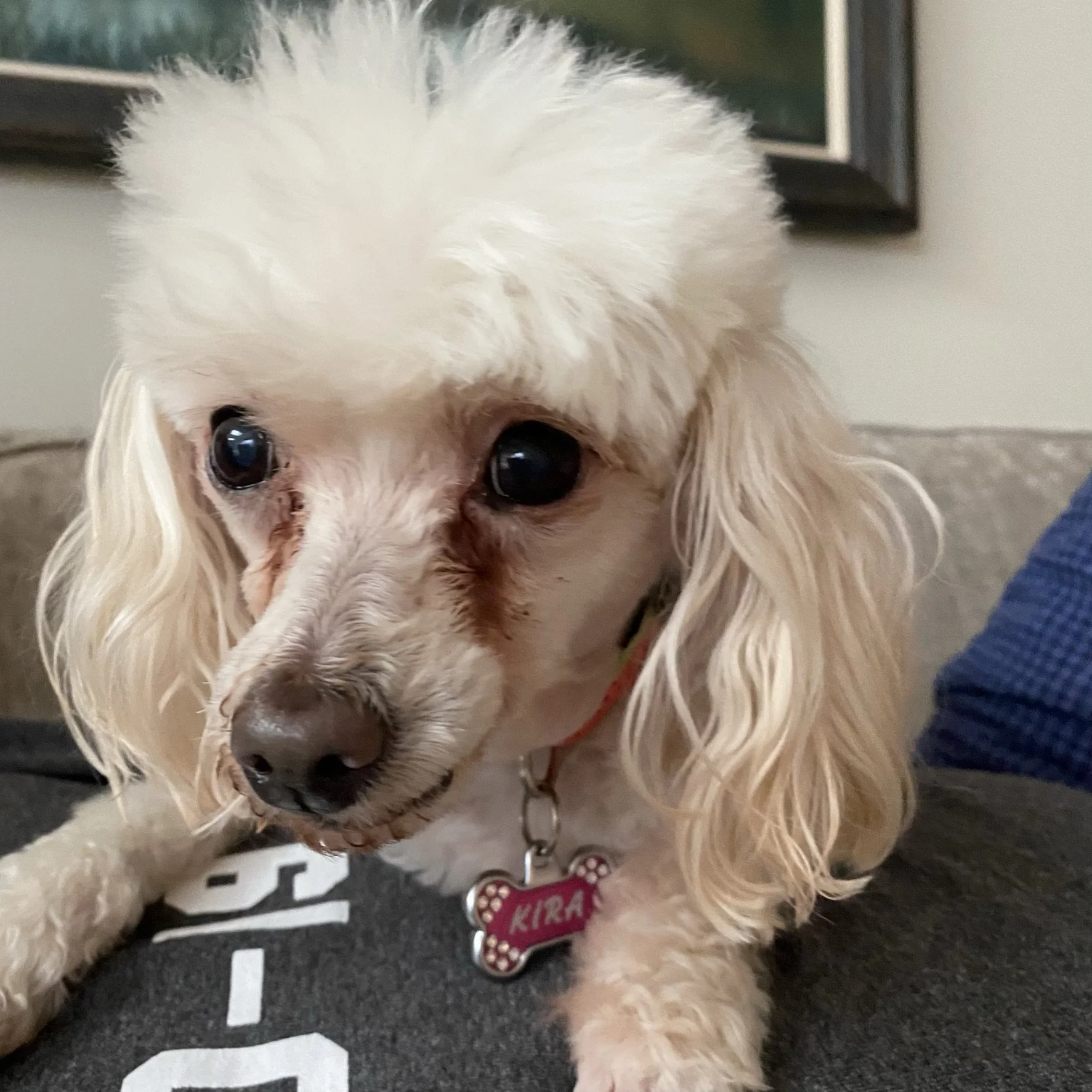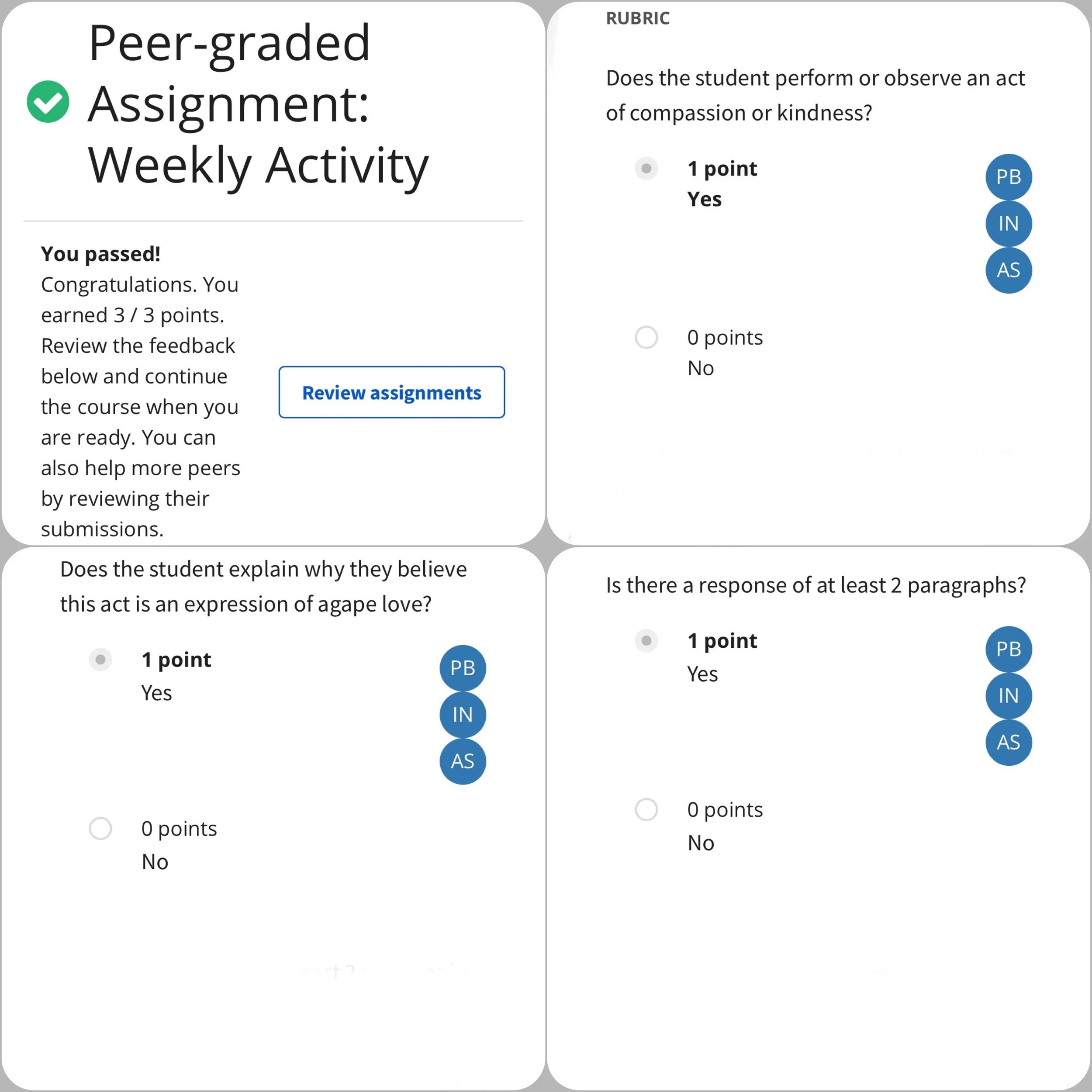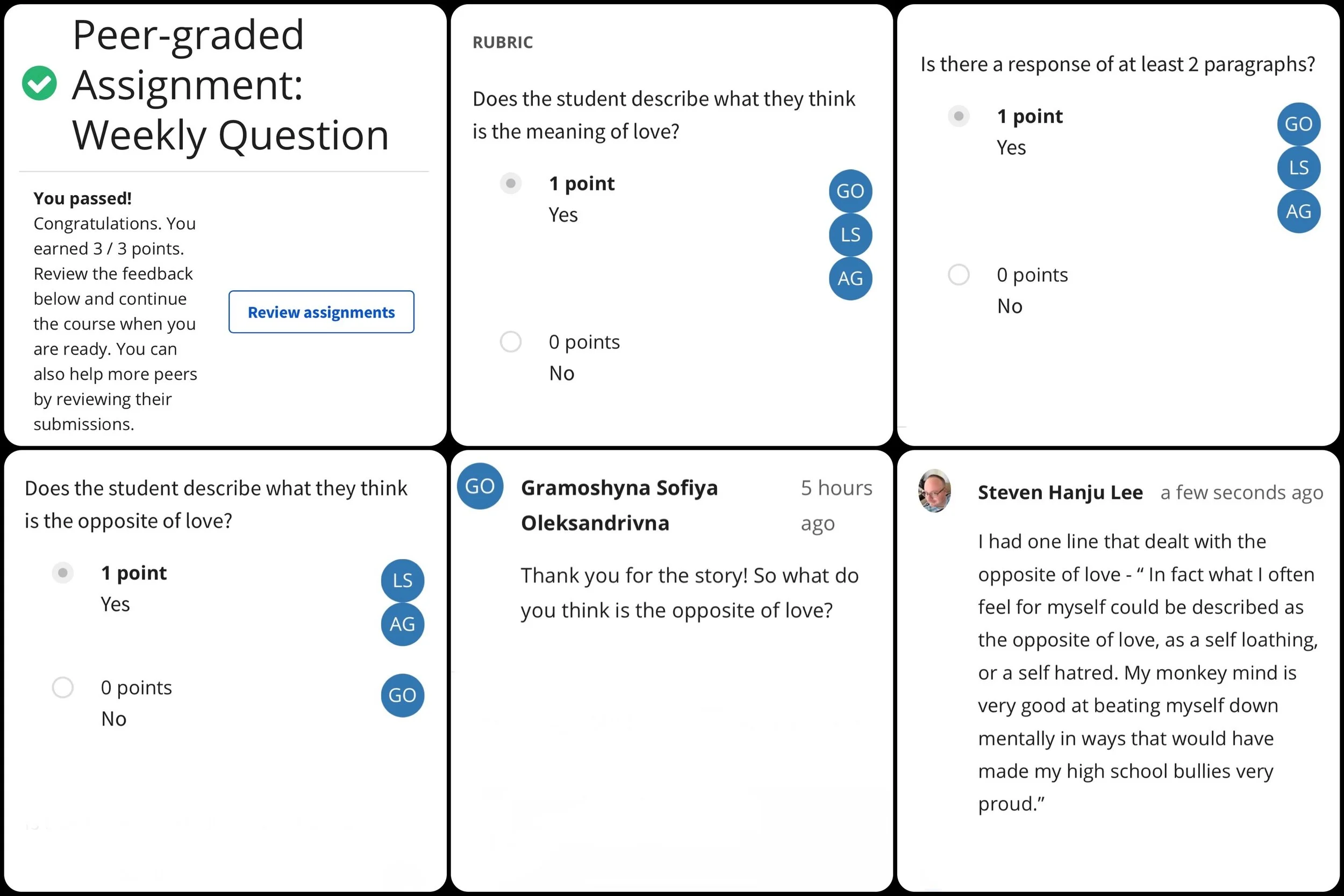Ryan York Conversation Response…
Do you think that love being defined as connection is a useful way to think about the concept of love? Why?
Love being defined as connection is a useful way to think about the concept of love. Connection is tied to the concept of philia, as it provides a foundation from which people can feel safe enough to build meaningful friendships. To this end, Maggie Wooll, in her November 2021 article, YOU KNOW YOU NEED HUMAN CONNECTION, written for the BetterUp website, defines human connection as:
“…a deep bond that's formed between people when they feel seen and valued. During an authentic human connection, people exchange positive energy with one another and build trust. Human connection makes you feel heard and understood and gives you a sense of belonging” (Wooll).
WORKS CITED
Wooll, Maggie. You Know You Need Human Connection. BetterUp, 17 Nov 2021.
Reflect on Ryan’s point that increased feelings of connection can affect the brain positively.
From my own experience I do believe that increased feelings of connection can impact the brain positively. When I am surrounded by people I trust, I can feel at ease and able to express and share my thoughts and feelings openly. Sometimes, I can share something that’s troubling me without fear of judgement, or I can tell a joke secure in the knowledge that we will share a laugh. Confirming this, Shannon Kaiser, in her 2022 book, RETURN TO YOU: 11 SPIRITUAL LESSONS FOR UNSHAKABLE INNER PEACE writes:
“And isn’t this what we all want from one another, to be seen and feel safe to express ourselves without judgment or shame? Even if someone has a different belief system, it doesn’t make them wrong, for they are aligning with a perspective that meets their soul’s current needs. If we can all apply a more compassionate, loving response to others, then when we disagree, we will see that our beliefs are not fact, nor do they define us—and what matters most is our connection to others” (Kaiser 70).
WORKS CITED
Kaiser, Shannon. Return to You: 11 Spiritual Lessons for Unshakable Inner Peace. SoundsTrue, 2022.
Thinking of Ryan’s comments on dogs: have you had a relationship with a pet or another animal that would lead you to think that such animals can feel and express empathy or compassion? Describe briefly.
I’ve been fortunate enough to have been raised around animals. I don’t think there’s ever been a time in my life where my family has not been around an animal of some sort. And I do believe that animals can feel and express empathy and compassion.
My current dog Kira is a very loving soul. I’ve had many people say they have never seen a dog with as much love for an owner as Kira does for me. She knows when I’m depressed, and can snuggle up close sometimes when she knows I need quiet time and a close connection, and at other times she can become really playful as though she’s trying to lift me up by putting a smile on my face. At night, if I’m reading something online, writing something or editing some photos - if I get frustrated with my smart device, I sometimes vocally express that frustration to myself by swearing. And in those moments she’ll get up and come lay on my chest, her head resting under my chin, her body and presence sitting between me and my smart device, as if she’s reminding me that it’s time to take a break. I don’t know how she knows, but it’s always comforting. Sometimes I wonder if she thinks I’m upset with her, but if that was the case she’d probably not approach.
Week 2 - Key Readings
Bergland, Christopher. The Neuroscience of Empathy. Psychology Today, 10 Oct 2013.
Wlassoff, Viatcheslav. Neurological Basis of Altruism. Brain Blogger, 29 Apr 2016.
Robert Sapolosky Conversation Response…
Reflect on Robert Sapolsky’sc comments about the brain and the “other” and his use of the term “moral disgust.”
I was intrigued by Sapolsky’s explanation of how behaviour is based on how our brains and nervous systems react, which is context specific and dependent. Specifically, Sapolsky states how:
“…we have a nervous system that sets us up for being spectacularly good at being compassionate. And at the same time, we have a nervous system that sets us up for excelling at being miserably awful towards other organisms. And what’s always the case with any of these realms of brain and behaviour is context. Context, over and over. In the right setting, we are unmatched in the animal kingdom in terms of the reciprocity we are capable of, the unreciprocated altruism we are capable of - and in other settings, we are barbarians in ways that no other primate can approach. It’s just incredibly context specific.”
Sapolosky is also leaning into how our amygdala is hard wired to make very fast fight of flight decisions, where we categorize things as falling into “us versus them” scenarios, where we can end up “othering” very quickly. Yiannis Gabriel, in his 2022 blog post titled OTHER AND OTHERING, describes othering as “…the process of casting a group, an individual or an object into the role of the 'other' and establishing one's own identity through opposition to and, frequently, vilification of this other.” Sapolosky also notes how easy it is for humans to be manipulated into changing its perceptions about what the other is, even within seconds. Sapolosky also discusses how we evolved to also process “moral disgust” in a similar manner, wherein we are programmed to make decisions quickly.
Think about the strong influence of oxytocin. Do you think that you are a person with an abundance of oxytocin, causing you to bond with others?
I’m unsure whether or not I have an abundance of oxytocin because I’m particularly shy and introverted when it comes to interacting with other people I don’t know. I’m socially awkward too, which I’ve found can impact my ability to forge friendships. This awkwardness stems from my experience in high school where I was bullied heavily from grade seven to nine. Grades ten to twelve were more lonely than anything else, as most students avoided interacting with me, and I avoided interacting with them as well.
Having said that, once I do form connections with others, I do become more open and extroverted. Also, in week one, I discovered that my primary love style is philia, which centres on a foundation of deep, loyal friendship. But it takes time. I’ve learned in recent years that I’m also demiromantic / demisexual, which means I need some kind of connection before I can fall in love or have sexual intimacy with someone else. I can’t hookup easily at all if there’s no connection - it’s like trying to drive a car with the engine off. You can’t. How this tire into oxytocin though, I’m unsure.
It does concern me though when Sapolosky describes how those with better social affiliations and connections tend to have better health. I do suffer from chronic stress, anxiety, and depression which makes it difficult for me to focus and function. He specifically explains how stress can “…predispose us towards learning to be afraid of things we shouldn’t.” And this is me in many ways: afraid to trust, to forge new bonds. And lately, afraid to invest in building up and maintaining existing ones. It goes back to fight or flight. More often than not today, I fly.
Week 2 Activity
Practice performing or appreciating an act of kindness or agape love: carry out an act of love as a force for social justice (ie. as an act of compassion or as an act of loving kindness) or notice such an act by someone else. Explain in two or three paragraphs why you think this is an expression of agape love.
This activity will be assigned each week, by design. We believe that repeated practice or observation of compassion or kindness increases our own capacity for love.
This recollection is from December 8, 2020. Today, I had an experience of doing something that was rooted in unconditional love where I didn’t think about it, I just did it. Specifically, I had parked my car at the neighbourhood Safeway to get a few groceries. But as I walked towards the store I noticed a solitary fella sitting cross legged, with his back against the building. He looked dejected but present, with a black windbreaker covering his slender frame. And while he had a cup in front of him for people to deposit spare change into, he had no other handmade signs promoting his plight or asking people to give. But he was clearly homeless.
Within seconds, my mind was made up, without any questions about what I should do. I just did it. I went inside and went straight to the produce department, where I found a container with veggies & dip, as well as one with sliced fruit. I dug around to find ones packaged today, so they’d be fresh and last longer. I then passed by a cooler and got a bottle of water. Then, I filled their largest to go container with soup from their hot soup bar. I think it was cream of mushroom. They also had soup spoons, forks and napkins, so I grabbed a few of those as well. I then looked at their pre-made sandwiches and selected a large sub sandwich that had been made that day - it was full of meat and veggies, and it was only $2 more than their selection of regular sandwiches which had little toppings in them. I then paid for all of that at a self checkout, putting it all into a bag.
Before going outside, I went to the in-store Starbucks, and ordered a chestnut praline latte for my Mom, as well as two peppermint hot chocolates (modified to only have two pumps of mocha & one pump peppermint syrup), one for myself & one for the guy outside.
I then went to take the food I already had bagged to the guy outside. And I admit that it did cross my mind as I passed through the store’s large vestibule that he might have moved on, and I asked myself, “what will I do with all this food?!”, but he was still there. I approached him and said “Hey, this is for you.” as I handed him the bag, which he accepted with a huge smile and enormous gratitude. He was SO appreciative. I said I had one more thing coming and he just thanked me again. I noticed his face was worn even though he was probably five to ten years younger than me. His hands were black with grime, but his heart felt pure as gold.
I still look for him whenever I go to that Safeway, but I haven’t seen him since that day in early December. I do wonder how he’s doing. Whether he made it through the cold spell we got okay. I know I’ll probably never see him again, but I still wonder nevertheless.








